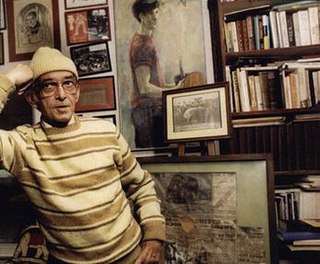A Quote by Jules Amedee Barbey d'Aurevilly
I did not want to be taken for a fool-the typical French reason for performing the worst of deeds without remorse.
Related Quotes
Perhaps there is a reason that there is no fool piece on the chessboard. What action, a fool? What strategy, a fool? What use, a fool? Ah, but a fool resides in a deck of cards, a joker, sometimes two. Of no worth, of course. No real purpose. The appearance of a trump, but none of the power: Simply an instrument of chance. Only a dealer may give value to the joker.
The indispensability of reason does not imply that individual people are always rational or are unswayed by passion and illusion. It only means that people are capable of reason, and that a community of people who choose to perfect this faculty and to exercise it openly and fairly can collectively reason their way to sounder conclusions in the long run. As Lincoln observed, you can fool all of the people some of the time, and you can fool some of the people all of the time, but you can't fool all of the people all of the time.
Simplicity is the straightforwardness of a soul which refuses itself any reaction with regard to itself or its deeds. This virtue differs from and surpasses sincerity. We see many people who are sincere without being simple. They do not wish to be taken for other than what they are; but they are always fearing lest they should be taken for what they are not.
I don't want to fool people. If I wanted to do that, I would be working with virtual reality. I want to operate on the other level, the other end of the illusion spectrum. I want to create the worst possible illusions so it doesn't really fool people, but instead give people a measure of their own belief. It makes them aware of how much they need to be fooled in order to understand the world around them.
Wisdom and virtue are by no means sufficient, without the supplemental laws of good-breeding, to secure freedom from degenerating into rudeness, or self esteem from swelling into insolence. A thousand incivilities may be committed, and a thousand offices neglected. without any remorse of conscience, or reproach from reason.
Dorothy Day, of blessed memory, did not like to be called (as she often was, for good reason) a saint, because it usually meant that she was not being taken seriously. She heard it as an accusation — a device ostensibly distinguishing her from ordinary people so as to simultaneously discount her words and deeds while exempting others from moral responsibility to speak and act.
For, owners of their deeds (karma) are the beings, heirs of their deeds; their deeds are the womb from which they sprang; with their deeds they are bound up; their deeds are their refuge. Whatever deeds they do-good or evil-of such they will be the heirs. And wherever the beings spring into existence, there their deeds will ripen; and wherever their deeds ripen, there they will earn the fruits of those deeds, be it in this life, or be it in the next life, or be it in any other future life.







































